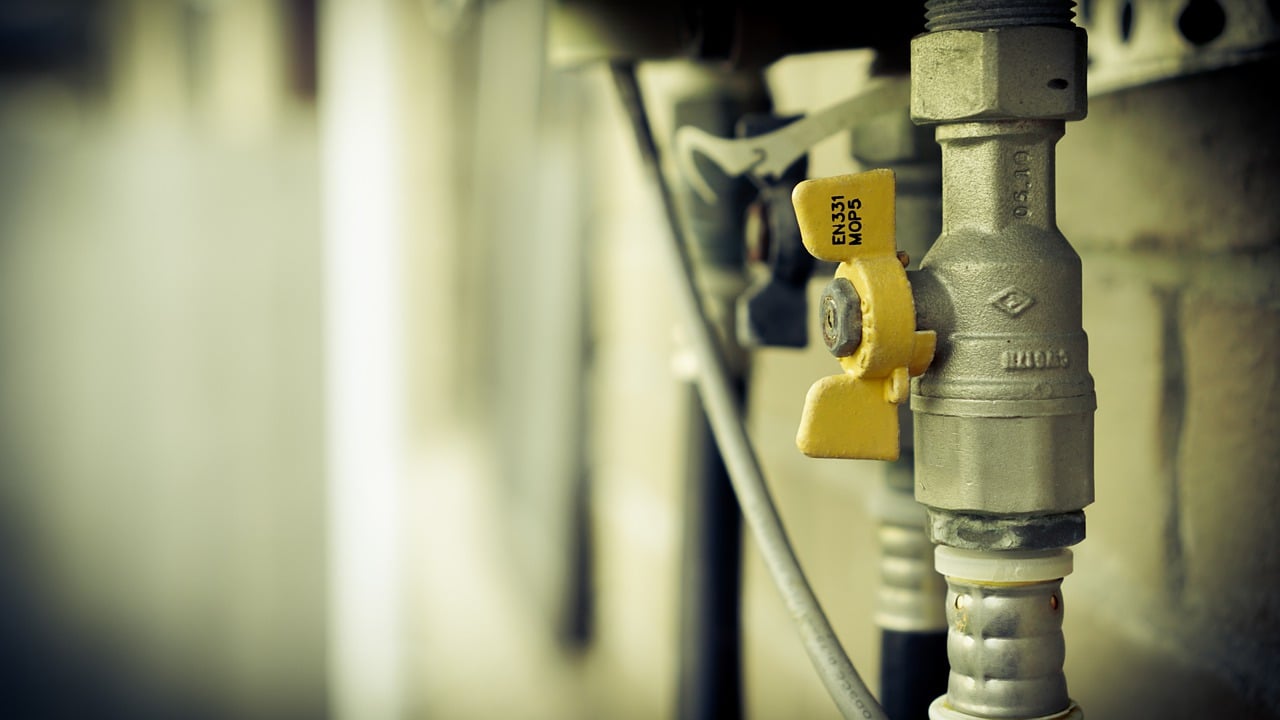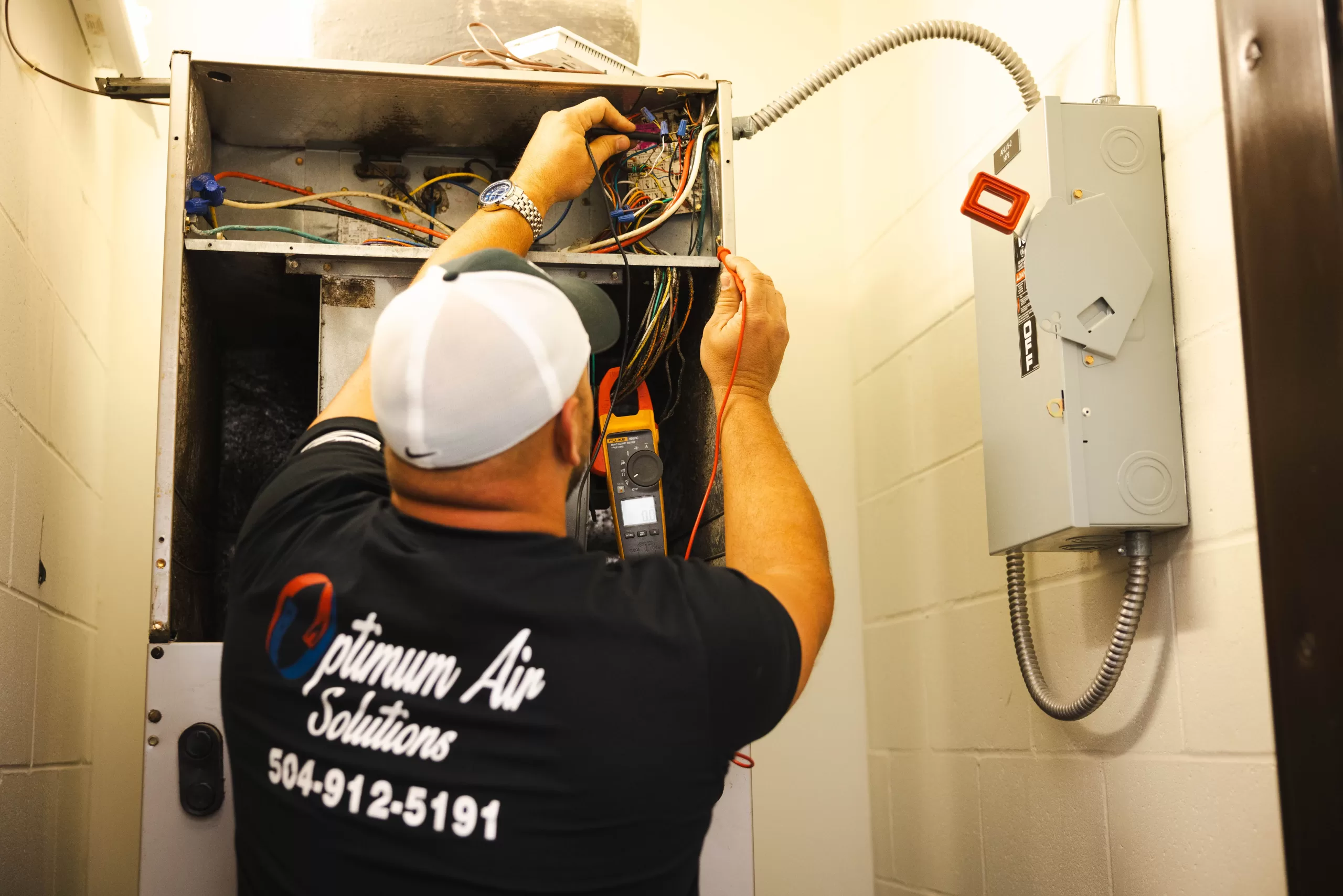
You truly cannot overstate the importance of efficient hot water solutions, especially in a place like New Orleans, where the climate is often unpredictable. A lot of homeowners are opting for tankless water heaters. Unlike their traditional counterparts that store their hot water in a tank, tankless systems will heat your water on demand which will provide you with a host of advantages.
That’s why, today, we’re answering the question “How does a heatless water tank work?”, and gaining a deeper understanding of its mechanics, benefits, and things you should think about before installation.
Let’s get started!
Understanding Tankless Water Heaters
If you don’t already know, a tankless water heater is a pretty solid and compact appliance that heats your water directly, without having to use a storage tank to do it. Once you turn your water tap on, the cold water makes its way through a pipe and into the unit. From there, it’s heated via either gas burners or an electric heating element, and BOOM! You’ve got yourself some hot water!
On the other hand, a traditional tank-style water heater relies largely on a water tank with the capability to maintain a specific amount of water. Once you run out of the hot water being stored in the tank, you’ve got to wait for the tank to refill and reheat, which, at times, can be inconvenient.
That said, not only are tankless water heater systems energy-efficient, their space-saving, making them a popular choice amongst modern homeowners.
How Does a Tankless Water Heater Work?
To truly understand the answer to the question “How does a tankless water heater work?”, you need to do a mini-deep dive into its heating mechanism. Once your hot water tap is opened, there will be a flow sensor that is activated in the unit that triggers the heating elements to turn on, which makes way for the cold water to be heated instantaneously as it is flowing through the unit.
Now, when it comes to water capacitors, that is dependent on their flow rate, which is usually measured in gallons per minute (GPM). Contingent on the size and the power of your tankless water heating unit, it would be able to deliver varying amounts of water all at once, from sending a hot water supply to a shower to sending one to a shower, a faucet, and a washing machine all at once.
One of the best things about how the tankless water heater works is how energy efficient it is. Their traditional water-heating counterparts are constantly consuming energy to keep their tank-stored water hot, which usually results in standby heating loss. When it comes to tankless water heater systems, water is heated only when needed, which is an ultimate energy and cost consumption minimizer.
Benefits of Tankless Water Heaters
While there are a whole host of benefits that come with having a tankless water heater installed, one of the standout advantages is the endless hot water supply it provides. These are systems that heat your water on demand, so there is never a worry about running out of hot water during your long showers or when you’re running more than one water-reliant appliance.
Another aspect that we have found appeals to our homeowning clients is their sleek, space-saving design. Typically, tankless models are much smaller and compact than traditional ones, which allows for more flexible installation options. These handy little gadgets have the capability to be mounted on the wall, which frees up valuable floor space in your laundry rooms or basements. The minimal space impact these systems deliver makes them the perfect choice for apartments or condos, where space is at a minimum.
Not to mention, tankless water heaters usually have longer lifespans in comparison to their traditional counterparts. Traditional water heaters usually have a lifespan of about 10-15 years, while tankless systems have the capability to last well over 20 years with proper regular maintenance. So when it comes to the longevity of tankless water heaters paired with the low operating costs, this may be the perfect investment for homeowners.
Things to Think About for Installation and Use
There are a few things to remember when it comes to deciding to install a tankless water heater. First off, we have professionalism. This is one of the most crucial aspects of guaranteeing that your system is operating efficiently and safely. Poor installation can lead to inadequate heating, expensive energy bills, and additional safety hazards.
Next, is maintenance. It’s important in keeping your tankless water heater working in a smooth condition. Be sure to descale the unit and remove mineral buildup. These tasks are absolutely essential for optimal performance.
Last but not least, we have sizing. You want to be sure to select the size that aligns best with your home and hot water demands. Working with a unit that is too small won’t provide sufficient hot water during your busiest water usage hours, while an oversized heater could lead to a lot of unnecessary energy waste, resulting in higher energy bills. For this, you should consult with a professional, and as always, Optimum Air Solutions would be happy to help!
Now that you officially have the official answer to “How does a tankless water heater work?”, you can decide whether or not a tankless water heater installation is for you! With their uncanny ability to deliver endless hot water solutions and energy savings, paired with their space-efficient design, tankless systems are definitely a top choice for those looking for more modern living.
Are you ready for your tankless heating water system? Get in touch with the Optimum Air Solutions team! We’re your trusted partners in all things heating installation service. We’ll work with you closely to thoroughly understand your needs. From there, we’ll find the perfect tankless water heating system for your space.
Click here to schedule a consultation with one of our specialists, and you’ll be well on your way to unlimited hot water in no time!
continue reading
Related Posts
When it comes to efficiently cooling your home, ductless AC
Maintaining a comfortable indoor environment starts with your indoor climate,
In the land of the sweltering, formally known as New



